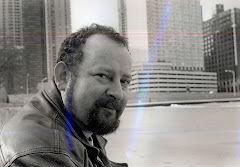Ivorismo Rating****
If you like good, old-fashioned entertainment, Black Book is a worthwhile picture to check out. Its director, Paul Verhoeven, hadn’t made a film back home in the Netherlands for more than twenty years. Best known for balls-to-the-wall Hollywood entertainments like Basic Instinct, Hollow Man, Robo Cop, Total Recall, Starship Troopers and the frighteningly bad Showgirls, Verhoeven first caught the eye with Dutch masterpieces like Keetje Tippel, Soldier of Orange, Turkish Delight, The Fourth Man, and the relentlessly brilliant Spetters. His movies are not for the faint of heart, or the politically correct. There are always buckets full of blood, robust sex scenes, a disturbing obsession with rape, scripts which often feature very awkward dialogue, and always, always, always, brassy, heavily made-up blondes and redheads. Verhoeven knows what he likes, the dark gray and chromed edges of black and white conflict between good and evil, and what could serve his sensibilities better than World War II?
There's only a single problem with the film. It's built to be a thriller, and we follow the brave progress of our stunningly gorgeous, brave, red-headed Jewish heroine, Rachel Stein (Carice Van Houten) with curiosity as she puts her life on the line for the resistance, again and again. So why does the film begin with a scene showing Rachel teaching at a kibbutz in 1956? Only Gerald Soeteman, Verhoevan's old screenwriting buddy from Turkish Delight-days could say. Nevertheless, despite a few problems with the plot, the biggest production in Dutch film history, Black Book packs so much energy and excitement into its two-and-a-half hours, I felt drained at the end.
The plot of Black Book runs thick and fast. In 1944, after their house is destroyed by an air raid, Rachel and her family escape Amsterdam to a farm, and are then betrayed as they flee the country on a barge. Only Rachel survives, despite being shot in the head. Having been rescued by two heroes of the resistance, Hans Akkermans (Thom Hoffman) and Gerben Kuipers (Derek De Lint), they waste no time about dolling her up and sending her into the Amsterdam headquarters of the Gestapo, and the bed of the prettiest male Nazi kommandant I've ever seen, Sebastian Koch as Ludwig Muentze. Koch, recently seen in the academy award-nominated The Lives of Others, as an East German writer who may or may not have spied on his friends for the Communist secret police, is superb in another role where his character is torn asunder by his own ambivalence. For a Gestapo kommandant, Muentze is a pleasant fellow, especially compared to the really really bad, sadistic thugs, Gunther Francken (excellently played by Waldemar Kobus), and General Kautner (Christian Berkel). Francken is flesh-crawlingly evil throughout, stepping on corpses as if they are part of the pavement, and licking his lips after each kill. I won't give away too much, but betrayal piles upon betrayal as the Nazis endeavour to capture the special black book belonging to the resistance, filled with the names of operatives and friends. In such a war as this, where one Nazi is fairly good and more than one resistance operative is a mole, the moral ambiguities of all the characters becomes questionable. Halina Reijn, Rachel's relentlessly, promiscuous hooker sidekick, proves somehow to be the true moral compass of all these shenanigans.
The ironies here may be layered on with a trowel by Verhoeven, but the cold ruthlessness of the resistance leadership in coercing a damaged young woman to use her body as a kind of Venus flytrap surely lays waste to the latest round of 'Good War' propaganda perpetuated by the American culture machine in the likes of Saving Private Ryan and HBO's Band of Brothers and the nonfiction bestseller, Tom Brokaw's The Greatest Generation. This is not to say that Saving Private Ryan is a bad film, per sé, but that we, as an audience, never get to see the enemy as anything but part of a ruthless component of a Nazi killing machine. This may have worked 70 years ago, but in these times, where we read daily about the atrocious beastly behavior of America and its enemies, too much simple thinking renders us all collectively stupid. Thus Rachel Stein becomes a whore for the resistance and becomes best friends with a real whore—one who admittedly has always used her body as a sort of cudgel to acquire whatever is necessary for survival in a Darwinistic world. This kind of thinking will not win Verhoeven any friends in the feminist world (save perhaps for that guerilla warrior Camille Paglia). In the end, as the betrayals pile up as high as the body count, the two pretty whores, prove to be the only ones who transcend Nazi evil and their Allied bosses pimp-like expedient use of them as whore assassins.
Movies about the resistance movements in World War II have, up to this point, been rather staid exercises in propaganda, save perhaps for John Frankenheimer's brilliant The Train. The very idea of a good Jewish girl sleeping with a Gestapo man and enjoying it will surely outrage some folks out there. Read the war diaries of Marguerite Duras, however, and you'll see that this, too, really was a way the war was won. A 150 minute film about World War II, in Dutch with subtitles, may not sound attractive to you, but, let me assure you, Black Book really is a first-rate action film.

No comments:
Post a Comment